Reviews
Vivement dimanche!
François Truffaut
France, 1983
Credits
Review by Cullen Gallagher
Posted on 24 April 2010
Source Home Vision Cinema VHS
Confidentially Yours! is the perfect title for a final film.1 Like the closing of a letter, the phrase is something of an intimate valediction. The secretive overtones suggest a shared knowledge, meant to be hush-hush, between sender and recipient — or, in the case of a movie, between filmmaker and audience member. This sort of private discourse seems especially suited to someone like François Truffaut who, even before he turned to making movies and writing criticism, saw the role of a director as an author, or “auteur,” whose personal worldview is inscribed in every shot of their movie.
However, we must be careful about how we extract such elegiac overtones from the title and extrapolate it to the film as a whole. The temptation to read this as a “final” film is undeniable, but it can also be misleading. Truffaut did not intend for Confidentially Yours! to be his last film, nor was he aware of the brain tumor that would eventually take his life the following year, 1984, at age 52.
Instead of a grandiose, career-summing swan song, Truffaut ended his career on a lighthearted throwback to the films noir of Hollywood yesteryear, with a decidedly screwball twist. Nostalgically filmed in black-and-white (literally, as the costumes and sets were themselves created in monochromatic hues), the story is based on a paperback crime novel by Charles Williams called The Long Saturday Night. The film begins with the murder of Claude Massoulier. Real estate agent Julien Vercel (Jean-Louis Trintignant) is in the woods hunting at the same time of the murder. Since we never see the killer, our suspicions naturally fall on Vercel, who begins acting guilty as soon as the police start asking questions. A link, and possible motive, is quickly uncovered: Vercel’s wife, Marie-Christine, was Massoulier’s mistress. And then the wife turns up dead, and Vercel finds himself hiding out from the police in his office basement.
Fanny Ardant (Truffaut’s real-life partner) plays Barbara, Vercel’s recently fired secretary who is the only person convinced of his innocence. While Vercel stays in the cellar, Barbara assumes the role of the amateur sleuth, traveling to Nice to uncover Marie-Christine’s secret life and tracking down the mysterious caller who harasses Vercel about his wife’s amorous exploits. The static/mobile dynamic of Vercel and Barbara brings to mind the relationship between the wheelchair-bound Jimmy Stewart and his detective-proxy-girlfriend Grace Kelly in Rear Window, which is only one of many references to Alfred Hitchcock. It is also one of the more successful, as it shows how Truffaut is able to re-assemble an allusion into something that is his own, that is more than just a coy reference. The same can’t be said of Barbara’s nighttime drive through the rain, an obvious throwback to Janet Leigh in Psycho. By making Barbara pull over and take a cab, Truffaut seems to be elbow-nudging his idol in the ribs, but that is hardly why the citation doesn’t work. Instead, it’s because the score by Georges Delerue that accompanies Barbara invokes none of the dread or tension of Bernard Herrmann’s incessant, percussive violin hits that turned Janet Leigh’s car ride into a psychological nightmare. Another reference is the scene in which Trintignant watches through a window as Ardant breaks into an apartment and is caught red-handed, which recalls a far better scene in Rear Window in which Stewart witnesses the same thing happening to Kelly. Trintignant’s expressions don’t capture the horror of Stewart’s, and the tension is effectively killed when Trintignant rushes up the stairs to aid Ardant. The immobility of Stewart, and the emasculating anxiety over not being able to help, is lost in Confidentially Yours! Perhaps Truffaut doesn’t want to mimic Hitchcock as much as annotate the origins of his own ideas. If that is the case, then some of these scenes would have played out much better without the weight of allusions.
As an exercise in genre, Confidentially Yours! doesn’t always succeed, and its failings largely have to do with the casting of Trintignant. Because we are never sure of Vercel’s innocence, and because he sits safely in a basement while Barbara does all the detecting for him, it’s difficult to sympathize with him. Trintignant’s cold, detached approach doesn’t help things, either. The romantic-comedy elements of the story are likewise hindered by Trintignant, who never quite clicks with Ardant in the way that, say, Myrna Loy does with William Powell in The Thin Man, or Kelly with Stewart in Rear Window, two movies that achieve a near-perfect balance of mystery and romance. Trintignant and Ardant’s arguments lack the sexual tension they seem to beg for, and when the pair mutually uncovers the identity of the mysterious, threatening phone calls, they look at each other and simultaneously snap their fingers. The gesture, however, feels forced, and with it the whimsical charm of screwball romance vanishes in an instant.
Even if Confidentially Yours! isn’t a proper farewell to cinema, it still says a lot about its maker. As Don Allen puts it in Finally Truffaut, “[the film] is neither innovative nor revolutionary but then Truffaut never laid claim to either of these qualities. All he ever wished to do was to revisit the cinema he loved and to make films in the same vein.”2 Allen is right that Confidentially Yours! is not as ambitious as Truffaut’s earlier work, but that doesn’t mean it is any less personal. The film stays true to the adoration and reverence which brought Truffaut to cinema, first as a spectator, then as a critic, and finally as a director. In this light, Confidentially Yours! is less about endings than it is about beginnings, in which the auteur travels backwards in time and revisits the sounds and images of the past.
More Love on the Run: The Films of François Truffaut
-

Les Mistons
1957 -

Une histoire d’eau
1958 -

The 400 Blows
1959 -
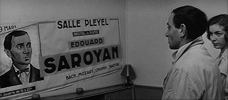
Shoot the Piano Player
1960 -
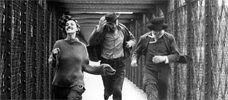
Jules and Jim
1962 -
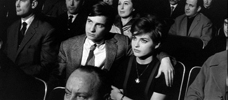
Antoine and Colette
1962 -

The Soft Skin
1964 -
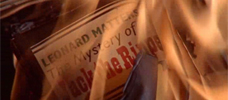
Fahrenheit 451
1966 -

The Bride Wore Black
1968 -

Stolen Kisses
1968 -

Mississippi Mermaid
1969 -
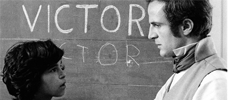
The Wild Child
1970 -

Bed and Board
1970 -

Two English Girls
1971 -
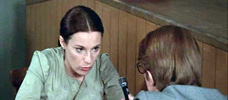
Such A Gorgeous Kid Like Me
1972 -

Day for Night
1973 -

The Story of Adele H.
1975 -

Small Change
1976 -
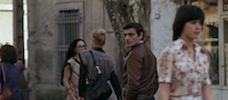
The Man Who Loved Women
1977 -
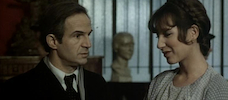
The Green Room
1978 -
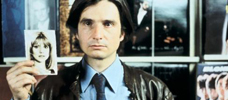
Love on the Run
1979 -

The Last Metro
1980 -
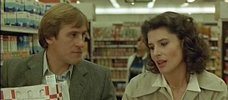
The Woman Next Door
1981 -
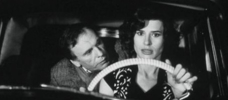
Confidentially Yours!
1983
We don’t do comments anymore, but you may contact us here or find us on Twitter or Facebook.



